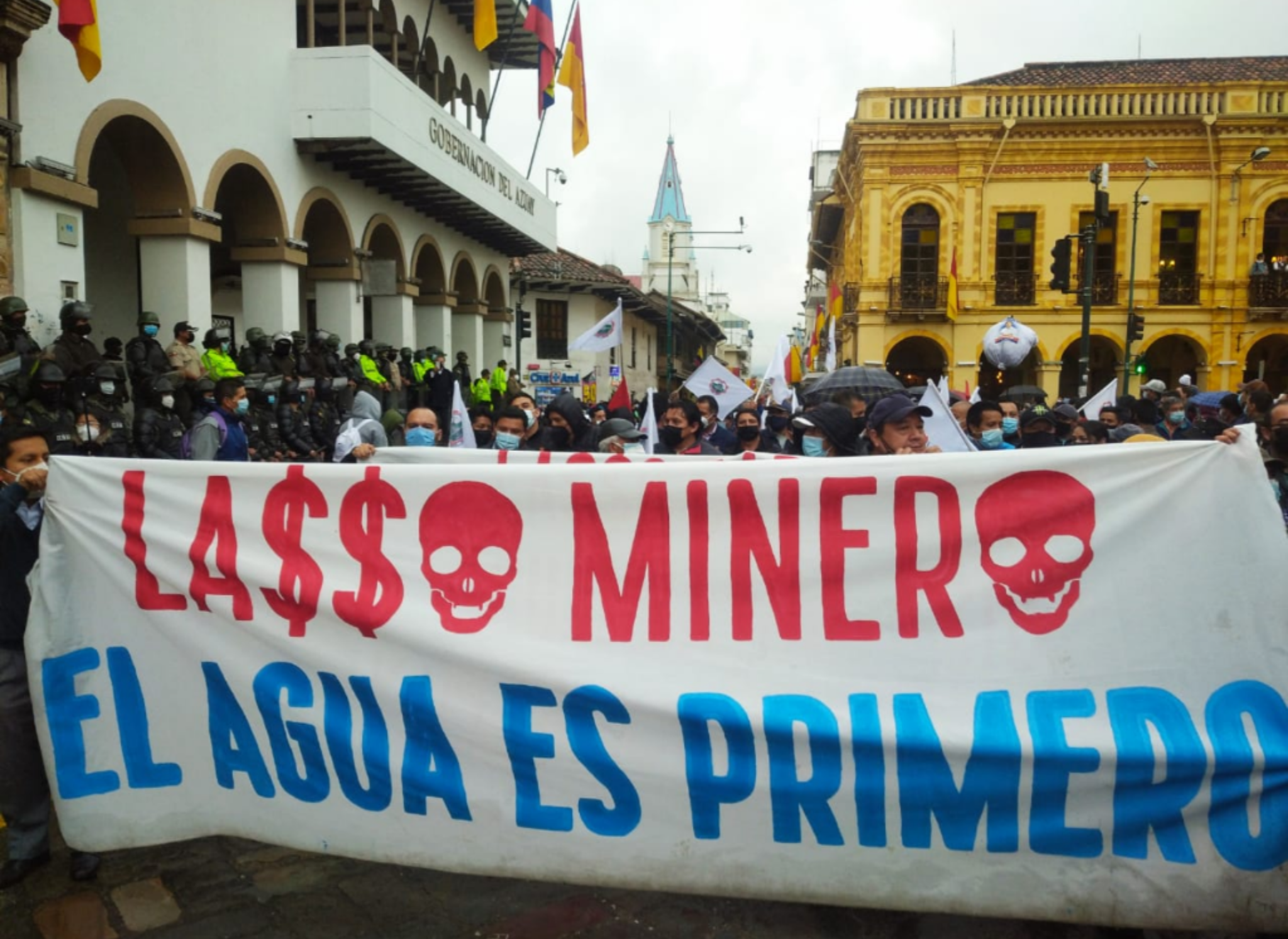Ecuador legal system manipulated in case brought by Rinehart’s company, investigation finds
The National Council of the Judiciary in Ecuador confirmed the presence of irregularities and manipulation of the judicial computer system in the Protective Action that allowed Gina Rinehart subsidiary Hanrine to forcibly enter the town of Buenos Aires on August 3.
The investigation was carried out by the National Directorate of Management Transparency after Assemblyman Mario Ruíz filed a formal complaint on August 18 over concerns about the case Hanrine brought to the Judicial Unit for Family, Women and Adolescents in September.
“We had the presentiment that there was corruption in the process which authorised the use of force against the population so that the company could enter, and unfortunately we were right,” says Yuly Tenorio, a lawyer for the people of Buenos Aires.
The inquiry revealed there were a number of irregularities and omissions in the Protective Action which gave the National Police the authority to clear a route through the town so the mining company could pass. The police operation in the early hours of August 3 saw 900 National Police officers use excessive force against peaceful townspeople, including tear gas.

The judge for proceedings is usually allocated through a lottery system, however in this instance the case was assigned directly by Gabriela Fernanda Beltrán Loyo, a judicial official who had already received administrative sanctions over irregularities in another case.
“No other judge was going to authorize the indolent repression of people who were exercising their right to resistance backed by a Precautionary Measure won by the people so that the company withdraws,” Yuly Tenorio says.
The revelation comes only a week after Hanrine was found to have paid pro-government protestors at a rally. Huge protests against the government over corruption concerns and an increase in fuel prices have been ongoing across Ecuador since Tuesday, October 19th.
“The actions of Hanrine in Ecuador have been concerning from the outset. They have continued to aggressively push mining equipment into the area despite resistance from locals who they say they were never consulted about a mine on their land,” says Rebekah Hayden, a writer and researcher for the Rainforest Action Group, an advocacy group investigating the actions of Australian mining companies in Ecuador. “Public officials have been threatened by Hanrine employees, with any who resist mining being taken to court by the company for obstructing ‘its constitutional rights’.”
“Article 398 of the Ecuadorian Constitution guarantees communities the right to a previous environmental consultation before any extractive process has begun. This has not happened anywhere in the country,” says Peter Shear, the director of APT Norte, an environmental and human rights group operating in Ecuador.
Assemblyman Mario Ruíz who filed the formal complaint says that the Judiciary's report “confirms our suspicions and unmasks the way in which the lawyers of the Hanrine company operate through fraud, misrepresentation and purchase of consciences ”.
After the revelations of the investigation, the Provincial Directorate of Pichincha opened an investigative file to determine disciplinary actions and apply corresponding sanctions to the civil servant Gabriela Fernanda Beltrán Loyo, Judge Byron Andrés Vallejo Naranjo, and Carlos Mesías Huilca Aguila, who served as secretary of the case.
FULL MEDIA RELEASE HERE